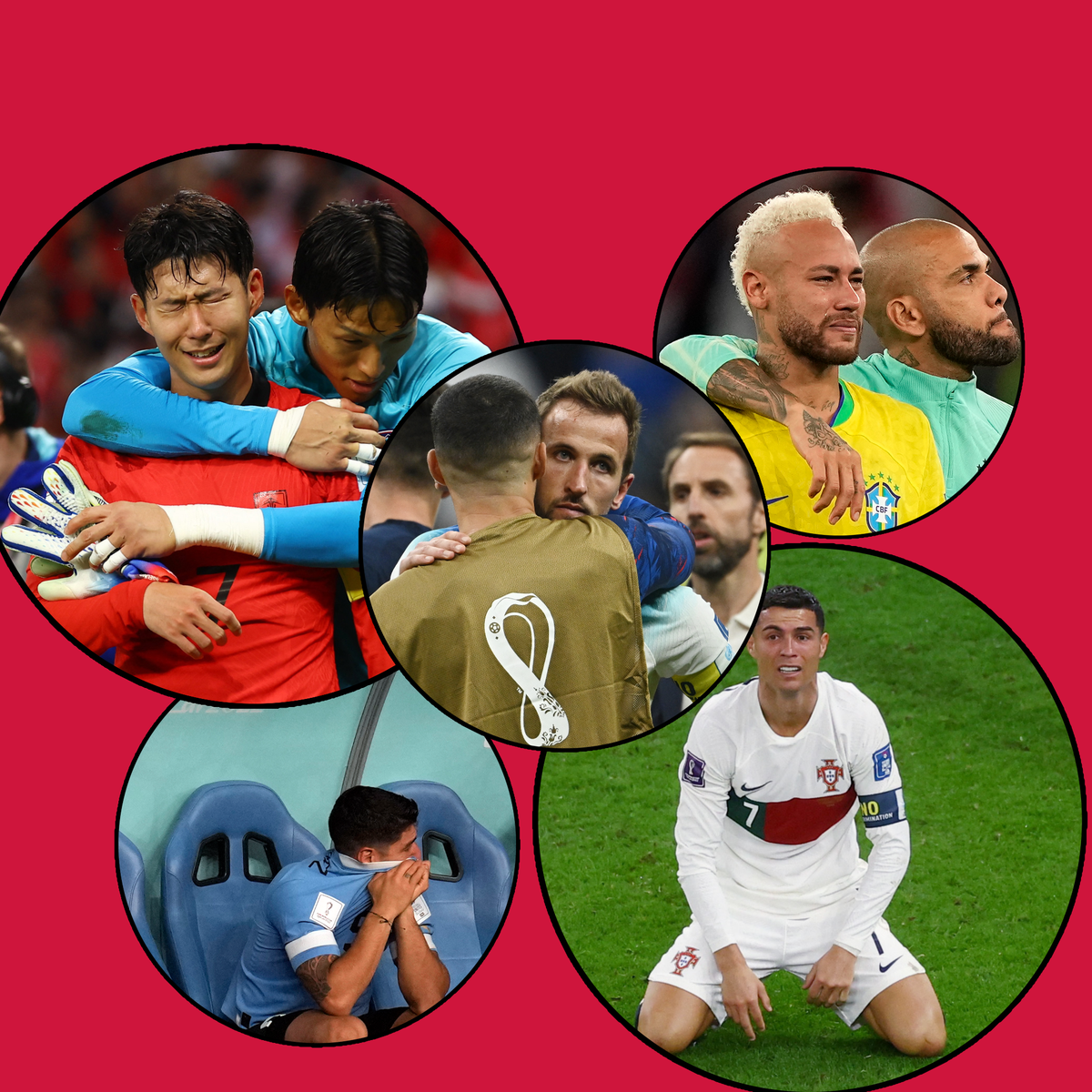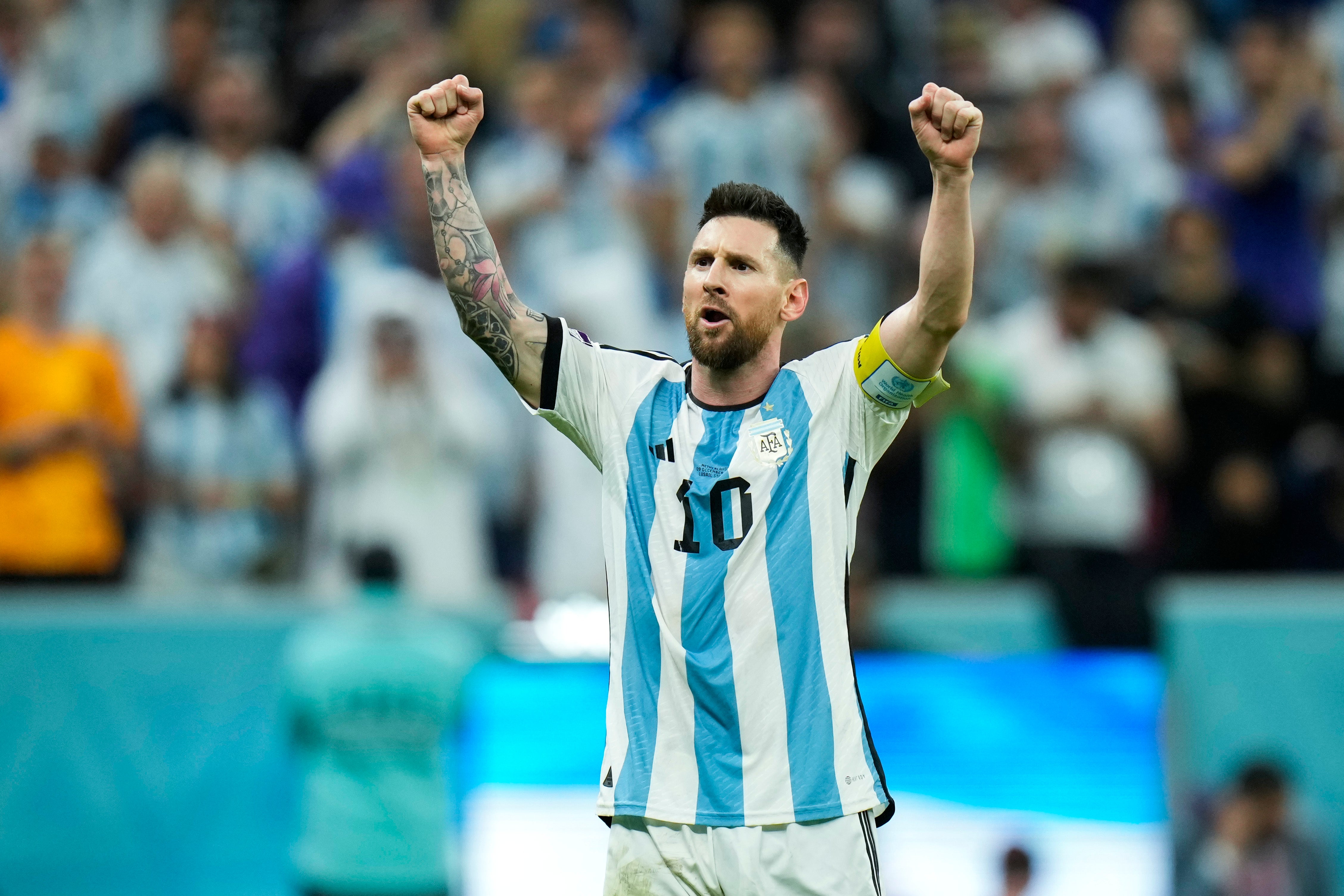
On 1 December, Thomas Muller left the World Cup in tears. On the second day, Luis Suarez sobbed. On the fifth day, Maya Yoshida cried. On the ninth day, Neymar wept. On the 10th day, Cristiano Ronaldo blubbed and Harry Kane bawled.
This is the power of a World Cup, a place where emotions are brought to the fore, stripped down and exposed. A place where rippling alphas remember being little boys with big dreams. None of them wanted to show it: Suarez hid his face in his shirt, Ronaldo marched to the dressing room, Kane hunched into a ball as his teammates shooed the cameras away. But they could not hold it in.
There is an enormity to each World Cup, as if watching history being written in indelible ink. Each tournament paints a picture with the moments that define it: Carlos Alberto’s goal in 1970, Maradona’s hand of God in 1986, that time Nigel de Jong nearly killed Xabi Alonso in 2010. A World Cup has its own definitiveness and a sense that few roads lead to second chances or redemption.
So they wept because they knew they could not retrieve what they’d lost. Ronaldo will never hold the World Cup. There will be no recognition of Neymar’s magical quarter-final goal, which for about 13 minutes was his iconic, career-defining, life-affirming moment. There will be no retaking of Kane’s penalty. Perhaps one day he will get another chance to lead England to a World Cup semi-final, but the journey to that place is long and uncertain.
This is the point. Football is not about making people cry, necessarily, but its capacity to stir the soul is what makes us watch. Recent talk of transforming the men’s and women’s World Cups from quadrennial to biennial events was hardly surprising because money talks, and Fifa answers only to God Mammon. Yet so much of this heightened emotion would have been eradicated if there was another World Cup around the corner, and in this case only 18 months away.
What makes the World Cup so successful as a sporting product is its scarcity, hoving into view every four years. It requires a decade to build, years of qualification, months of build-up, weeks of preparation, and yet all hope can be extinguished in a kick. Lionel Messi has been alive for 35 years and played professional football for nearly two decades, redefining what we thought possible. Yet whether he joins Pele and Diego Maradona in the pantheon of legendary World Cup winners will be known on Sunday at around 8pm in Doha, and it will never be unwritten. “It’s my last World Cup,” he said. “It is impressive to end up playing a final. There’s a long way to go for the next one, there are many years and surely because of age I won’t get to it.”

It is noticeable that there has been very little push for the biennial idea here. Fifa could have tried to harness the drama of Qatar to promote the cause. Fifa’s global development chief Arsene Wenger was the face of the controversial plan, but made a major U-turn in comments to L’Equipe last week. “I was actually thinking about [biennial World Cups] and I thought it wasn't a bad idea, but such development required a complete review of the qualification calendar. We aren't going to do that, but focus on a cycle of four years alternating with a World Cup, a Women's World Cup, which is becoming more and more important, and the Euros.”
This is ostensibly a good thing, but we should always be vigilant. The threat of a European Super League will come back in some form, despite the best efforts of those who care about the game. No doubt the argument for a two-year World Cup cycle will resurface too, because money dictates so. But its scarcity is what underscores everything: the pain and the panic, the rancour between Argentina and Netherlands, the passion and pride of Morocco, the tension as South Korean players huddled around an iPhone watching their fate decided by another game.
This World Cup has shown the value of something rare, and that is worth protecting.







